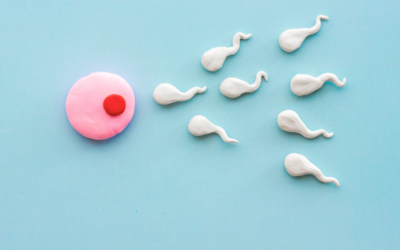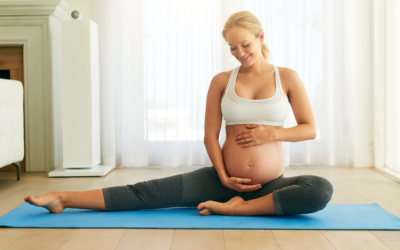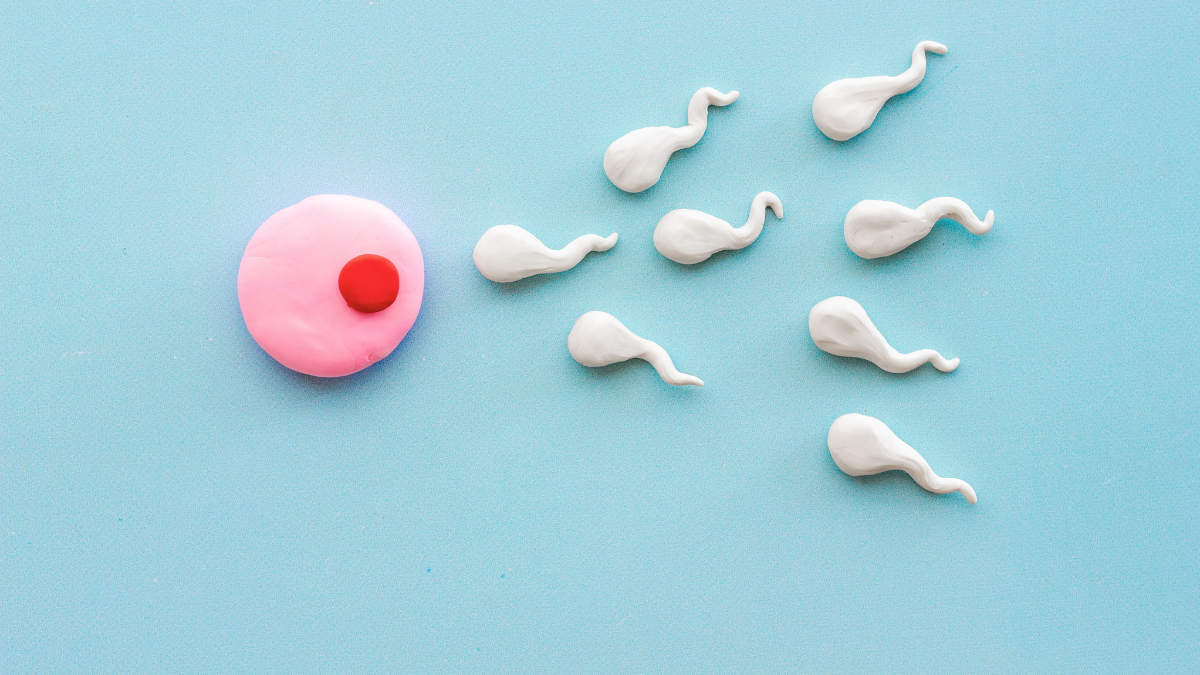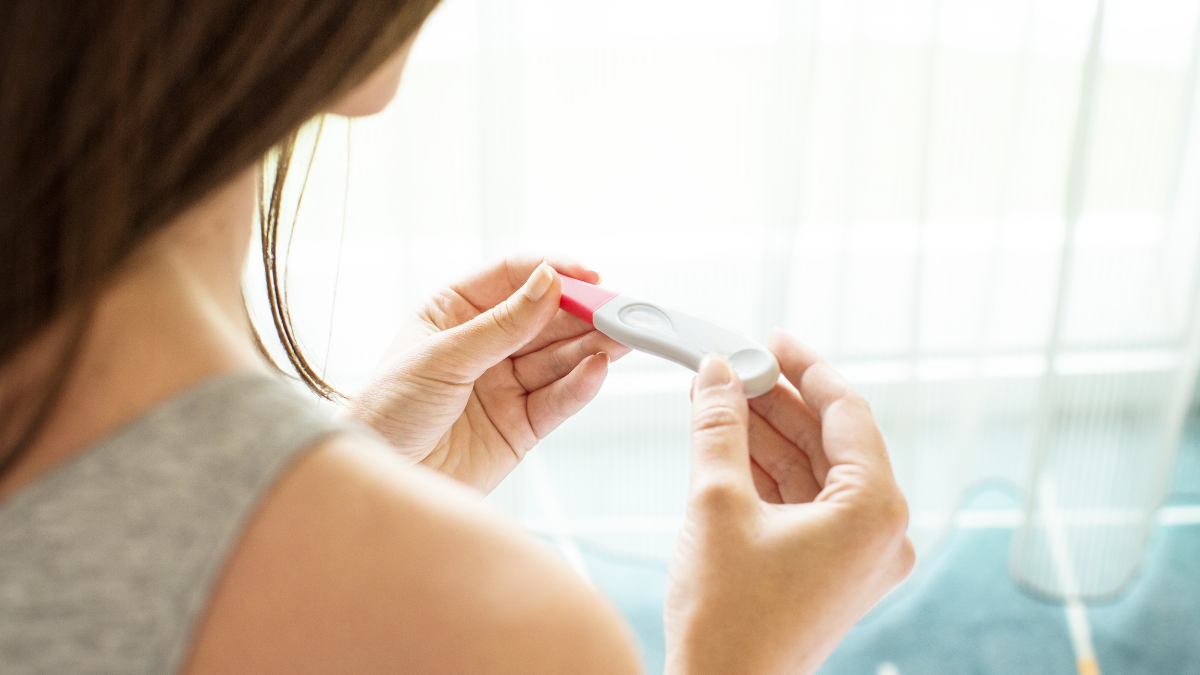Have you ever wondered if the timing or position of sex affects your chances of getting pregnant? You’re not alone. Many couples trying to conceive are eager to understand how to make the most of their efforts. Understanding sex and conception isn’t just about romance—it’s about science, timing, and a little bit of strategy.
Whether you’re just beginning your fertility journey or have been trying for a while, this guide will walk you through the most effective approaches to increase your chances of conception naturally. From tracking ovulation to choosing the best positions for sperm to reach the egg, knowing what works can ease stress and provide a clear roadmap.
In this article, you’ll learn how sex and conception are closely linked, what the optimal fertile window looks like, the benefits of proper timing and positioning, common myths that could mislead you, and actionable steps to get started today. If you’re looking for evidence-based, friendly, and empowering advice, you’re in the right place!
Let’s dive into everything you need to know about sex and conception so you can take the next steps with confidence.
Table of Contents
What is Sex and Conception?
Sex and conception refer to the biological and emotional process of becoming pregnant through intercourse. In simple terms, when a man ejaculates sperm during sex and it successfully meets a woman’s egg during ovulation, conception can occur. This marks the beginning of pregnancy.
Scientifically, conception happens when one of the millions of sperm cells swims through the cervix and into the fallopian tube, where it fertilizes an egg. This process typically happens within 24 hours of ovulation, which is why timing is crucial. For couples trying to conceive, understanding the fertility window—the days when a woman is most likely to get pregnant—is essential.
Sex and conception have long been connected to cultural, spiritual, and emotional dimensions of human life. But with modern understanding, we now know how specific factors like cycle tracking, health habits, and even sex positions can affect success rates.
Understanding Your Fertile Window
The fertile window refers to the days in your menstrual cycle when you’re most likely to get pregnant. This window includes:
- The five days before ovulation
- The day of ovulation
- And sometimes, the day after ovulation
Ovulation usually occurs about 14 days before your next period, especially in a 28-day cycle. However, every woman is different, and cycle lengths can vary, making it important to track your signs of ovulation.
Signs You’re Ovulating:
- Mild abdominal pain (known as mittelschmerz)
- Clear, stretchy cervical mucus
- A slight rise in basal body temperature
- Increased sex drive
- Positive ovulation predictor test (OPK)
To increase your chances of conceiving, try to have sex every 1–2 days during the fertile window. This ensures that sperm is present when the egg is released.

Best Times to Have Sex for Conception
Timing is everything when it comes to sex and conception. You don’t need to have sex every day of the month — just at the right time.
Most Fertile Days:
- Two days before ovulation
- The day before ovulation
- The day of ovulation
Sperm can live up to 5 days in the female reproductive tract, but the egg survives for only 12–24 hours after release. That’s why it’s important to have sex before ovulation so sperm are ready and waiting.
Tips for Tracking Fertility:
- Use a fertility app to monitor your cycle
- Track basal body temperature (BBT) daily
- Check cervical mucus for fertile signs
- Try ovulation predictor kits (OPKs)
Regular and relaxed intimacy around this window increases your odds of success, without turning sex into a chore.

Best Sex Positions for Conception
While there is no scientific proof that specific positions significantly boost fertility, some experts believe that positions allowing for deeper penetration might help deposit sperm closer to the cervix.
Here are some commonly recommended positions for conception:
1. Missionary Position (Man on Top)
This classic position allows for deep penetration, helping sperm get closer to the cervix. It also minimizes sperm leakage after ejaculation.
2. Doggy Style (Rear Entry)
This position is believed to help the sperm reach the cervix faster due to the angle and depth of penetration.
3. Side-Lying Position
A relaxed and gentle option that still allows for close contact and sperm delivery.
4. Hips Elevated After Sex
While technically not a position during intercourse, lying on your back with a pillow under your hips for 10–15 minutes post-sex may help prevent sperm from leaking and give it a better chance to reach the egg.
Tip: Don’t stress too much about the perfect position. The most important thing is feeling connected and comfortable during intimacy.
Tips to Maximize Fertility Naturally
In addition to timing and positioning, your overall health plays a key role in conception. Here are natural ways to boost fertility:
For Women:
- Maintain a healthy weight
- Take prenatal vitamins with folic acid
- Avoid smoking, alcohol, and excessive caffeine
- Manage stress with yoga, meditation, or nature walks
- Eat a balanced, fertility-friendly diet
For Men:
- Wear loose underwear to avoid overheating the testes
- Limit hot baths or saunas
- Avoid smoking and reduce alcohol
- Eat foods rich in zinc, selenium, and antioxidants
- Exercise regularly, but avoid overtraining
Remember, both partners’ health matters in the conception process.
When to See a Fertility Specialist
If you’ve been having regular unprotected sex for:
- Over 12 months (if under age 35)
- Over 6 months (if over age 35)
… and still haven’t conceived, it may be time to consult a fertility expert.
They may recommend:
- Hormone testing
- Semen analysis
- Ultrasounds
- Ovulation tracking
- Fertility treatments, if necessary
Early evaluation can uncover hidden issues and offer a clearer path to pregnancy.
Keeping the Romance Alive While Trying to Conceive
Focusing on sex and conception can sometimes shift intimacy from fun to functional. Here’s how to keep the spark alive:
- Plan date nights that don’t revolve around fertility
- Surprise each other with small gestures of love
- Talk openly about your feelings and frustrations
- Schedule “non-baby-making” sex for fun and closeness
- Try stress-relieving activities together, like massage or nature walks
A strong emotional bond can ease the stress of trying and make the journey more joyful.

Causes of Delayed Sex and Conception
Even with regular intercourse, some couples find that conception doesn’t happen right away. Multiple factors can delay or interfere with sex and conception:
- Irregular ovulation or conditions like PCOS can make it harder to pinpoint fertile days.
- Low sperm count or motility can reduce the chances of successful fertilization.
- Age-related fertility decline—especially after 35 in women and 40 in men—can play a role.
- Lifestyle choices, such as poor diet, smoking, heavy alcohol use, or lack of sleep, negatively affect fertility.
- Chronic stress or anxiety can impact hormone levels and sexual health.
- Using the wrong timing—many couples miss ovulation because they’re unaware of their cycle patterns.
Thankfully, many of these causes are manageable. A combination of awareness, healthy habits, and support can help overcome most obstacles to sex and conception.
Benefits of Understanding Sex and Conception
When you understand the connection between sex and conception, it can completely change your approach to getting pregnant. Here are some of the biggest benefits:
- Optimized Timing: Knowing when you’re most fertile (usually the 5 days before ovulation and the day of) can significantly increase your chances of pregnancy.
- Less Stress: When you understand how sex and conception work, you can avoid unnecessary worry and confusion.
- Empowered Decisions: You’re more likely to make healthy lifestyle choices that support fertility, such as reducing alcohol intake, maintaining a healthy weight, and quitting smoking.
- Better Communication: Couples often find that this knowledge fosters more open, supportive conversations about family planning and intimacy.
- Increased Control: Rather than leaving pregnancy up to chance, understanding sex and conception gives you a sense of agency.
- Improved Sexual Health: Regular, meaningful sexual activity can improve mood, deepen bonds, and boost overall well-being.
- Cost Savings: When you apply natural techniques like timing and positions, you may avoid costly fertility treatments in the early stages.
Educating yourself on sex and conception doesn’t just benefit your fertility—it also enhances your emotional and relational life. It’s an investment in your health, your relationship, and your future family.
Impact of Sex and Conception on Daily Life
For couples actively trying to conceive, the topic of sex and conception often becomes a central part of daily life. But while it can be exciting, it also introduces changes to your routines, habits, and emotions.
Relationship Dynamics: You may find that sex shifts from spontaneous to scheduled around ovulation, which can either increase intimacy or create pressure. Being mindful and keeping communication open helps maintain a loving and relaxed environment.
Routine Adjustments: Tracking cycles, using ovulation predictor kits, and planning sex during the fertile window can become part of your routine. While these steps can seem technical at first, many couples say it brings them closer together.
Emotional Rollercoaster: The hope each month, followed by the possibility of disappointment, can be draining. Understanding the science of sex and conception can help set realistic expectations and reduce emotional stress.
Health Habits: Many couples begin to take better care of their health—eating well, exercising, and reducing toxins—to improve fertility. These habits often become long-term lifestyle changes, benefiting both partners.
Overall, sex and conception can bring couples together, sharpen focus on health, and deepen emotional bonds. With the right information and support, it becomes a positive and empowering part of your life.
How to Practice Sex and Conception Effectively
If you’re looking to improve your chances of getting pregnant, here are practical, science-backed steps you can take right now to optimize sex and conception:
- Track Ovulation: Use ovulation predictor kits, basal body temperature charts, or fertility tracking apps. Ovulation usually occurs 14 days before your next period.
- Time Sex Wisely: Have sex during your fertile window—typically 5 days before ovulation and on the day itself. Every other day during this window is often enough.
- Choose Fertility-Friendly Positions: Positions that allow for deep penetration, such as missionary or doggy style, help deposit sperm closer to the cervix.
- Stay Lying Down After Sex: While evidence is mixed, lying down for 10–15 minutes after sex may help more sperm reach the cervix.
- Maintain a Healthy Lifestyle: Eat a balanced diet, reduce alcohol, quit smoking, and get enough sleep.
- Manage Stress: Consider yoga, meditation, or counseling to help regulate hormones and improve emotional health.
- Limit Lubricants: Many common lubricants can inhibit sperm mobility. Use sperm-friendly alternatives if needed.
- Consult a Specialist: If you’ve been trying for over a year (or 6 months if over age 35), consider a fertility assessment.
Applying these strategies consistently can significantly increase your chances of conception—and even enhance your relationship along the way.
7 Proven Sex and Conception Tips to Boost Fertility
Here are 7 science-backed and practical tips to help increase your chances of successful sex and conception:
1. Track Your Ovulation
Use tools like ovulation predictor kits (OPKs), fertility apps, or basal body temperature charts to identify your most fertile days. Ovulation typically occurs 14 days before your next period.
2. Have Sex During Your Fertile Window
Your most fertile days are the 5 days before ovulation and the day of ovulation. Aim to have sex every other day during this time for optimal sperm health.
3. Use Fertility-Friendly Positions
Positions like missionary or doggy style allow for deeper penetration, helping sperm get closer to the cervix. Lying down for 10–15 minutes post-sex might also help.
4. Maintain a Healthy Lifestyle
Fertility-friendly habits include eating a balanced diet, getting regular exercise, limiting alcohol, avoiding smoking, and managing stress.
5. Avoid Harmful Lubricants
Many commercial lubricants harm sperm. Use sperm-friendly ones like Pre-Seed or natural alternatives like canola oil.
6. Stay Consistent but Don’t Overdo It
Every other day during the fertile window is ideal. Daily sex can sometimes reduce sperm count, while infrequent sex can mean missing ovulation.
7. Don’t Ignore Emotional Health
Stress can disrupt hormones. Practice relaxation techniques like yoga, deep breathing, or even journaling to stay grounded.
Practicing these tips consistently can improve your chances of conception while also enhancing intimacy and health.

Common Myths or Mistakes About Sex and Conception
There’s a lot of misinformation out there about sex and conception. Let’s bust a few common myths:
- Myth: “You can get pregnant any time during your cycle.”
Truth: Conception is most likely during the fertile window around ovulation. - Myth: “Having sex every day increases chances.”
Truth: Every other day during the fertile window is usually ideal for sperm quality. - Myth: “Certain positions guarantee pregnancy.”
Truth: While some positions may help, no position guarantees conception. - Myth: “It happens quickly for everyone.”
Truth: It can take time, up to a year, for many healthy couples.
Avoiding these myths will save you stress and guide you toward methods that support sex and conception.
Conclusion
Understanding sex and conception empowers you with knowledge that can transform your fertility journey. It’s not just about increasing your chances of pregnancy—it’s about building awareness, strengthening your relationship, and making confident, informed decisions.
By learning to track ovulation, adjusting your timing, using fertility-friendly positions, and maintaining a healthy lifestyle, you set yourself up for success. Sex and conception are natural, beautiful parts of life, and when you approach them with mindfulness, they can bring both joy and results.
Remember, every couple’s journey is unique. Be patient, stay informed, and don’t be afraid to seek medical guidance when needed. If you’ve found this article helpful, please share it with someone who might benefit, comment below with your thoughts or questions, and don’t forget to subscribe for more insights on fertility, health, and wellness.
We’re here to support your journey—because your dreams of parenthood matter.
Frequently Asked Questions (FAQ)
Q1: What is sex and conception in simple terms?
A: Sex and conception involve having intercourse during a woman’s fertile window so that sperm can meet and fertilize the egg, resulting in pregnancy.
Q2: What causes difficulty with sex and conception?
A: Causes include irregular ovulation, low sperm count, lifestyle factors, age, and stress.
Q3: How can sex and conception improve my life?
A: Understanding them helps you make informed decisions, reduces stress, and improves emotional intimacy and physical health.
Q4: Is sex and conception scientifically proven to work?
A: Yes, many studies confirm that timing, positions, and healthy lifestyle choices can boost natural fertility.
Q5: How long does it take to see results from sex and conception strategies?
A: Most healthy couples conceive within 6–12 months with consistent, well-timed intercourse.
Q6: Can anyone try sex and conception, or is it only for certain people?
A: It’s safe for all couples trying to conceive, but consult a doctor if you’ve been trying without success for over a year.
Q7: What’s the best way to start practicing sex and conception today?
A: Begin by tracking your ovulation cycle and having sex during your fertile window using recommended positions.







